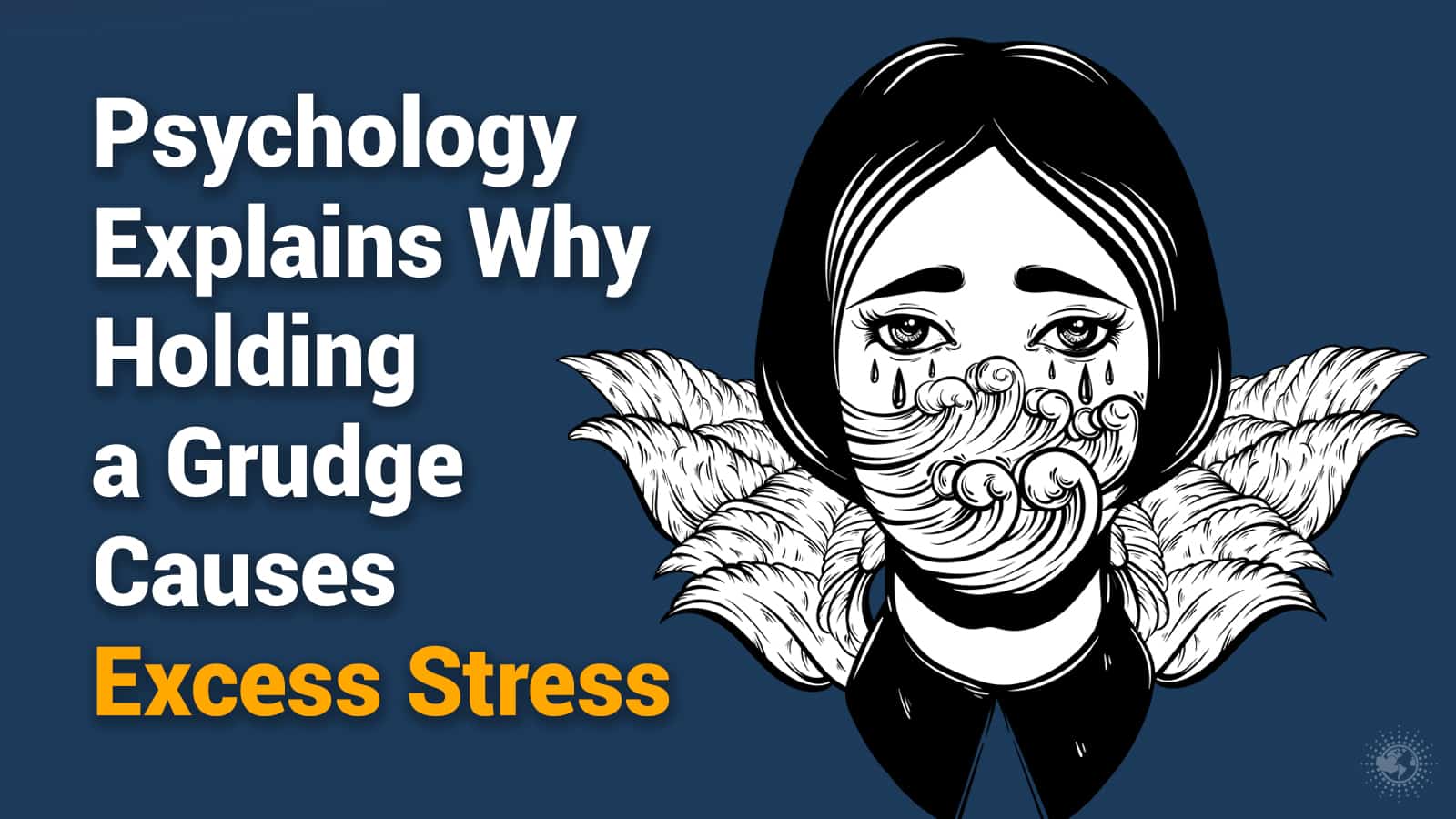Few people can confidently say that they experience no regrets. Sadly, a part of life is all about doing things that you won’t look back on favorably later. It is how we, as human beings, learn and grow!
But regrets can grow bigger and bigger until they become very painful for you. They can even reach a point where you begin to obsess over them, leading to more regrets! So how can you stop this cycle from continuing? Here’s how a psychologist explains twelve ways to stop regretting and make peace with yourself.
1. Alter Your Current Course
If you find yourself always unhappy or feeling like you’ve missed out, this might be a surefire sign that you need to change something. According to California Polytechnic State University Professor of Psychology Shawn Meghan Burn, Ph.D., regret can be a way of the brain, informing you that change is needed.
Consider that perhaps you need to:
- Consider going back to school.
- Switch jobs to something more fulfilling
- Step away and leave an unhealthy relationship
- Reach out to others and restore relationships
- Learn how to express your emotions, both positive and negative
- Travel and explore the world
- Move to a new home
- Take better charge of your physical, emotional, and mental states.
2. Know That You Are Fallible
It’s natural for humans to make mistakes at some point – that’s just how it is, says child and adolescent psychiatrist and author Mark Banschick, MD. However, always regretting and lamenting the faults in your decisions isn’t healthy. Understand that your mistakes aren’t you, and you’re still a wonderful person worthy of love despite your mistakes.
If you don’t learn to accept and move on from your mistakes, that prolonged sense of regret may interfere with:
- Your sense of self
- Aspects of your relationships
- Your career
- Your ability to care for your health
- Positive thinking
- Sadness
3. Apologize
Many of us would feel that we ought to carry our regret as punishment for hurting someone, says Burn, but this guilty and shameful form of sorrow is unhealthy and unhelpful – especially if there is nothing else that can be said or done after the events have passed. Research shows us that it is better for everyone involved to:
- Avoid victimizing yourself, both internally and externally
- Offer a genuine and honest apology without beating yourself up
- Try to make it up to them; then, amend things the best you can
- Use this as motivation to change your behavior and future actions for the better
It’s very likely that the person you may have hurt will forgive you upon this apology, and won’t hold it against you. They may not even remember what you had done, or consider it hurtful!
4. Don’t Keep Thinking “Should”
Are you someone who struggles with positive thinking and defaults to self-hatred instead? That may be the cause of your depression and anxiety. Research has shown that if you’re continually inflicting yourself with self-loathing, it will also effectively affect your mental state, alongside all of the actions and behaviors that spring from it.
As you can imagine, this isn’t healthy for you or the people you love. Instead, it would be better for you to:
- Stop fixating on your past mistakes, and what you should’ve done.
- Understand and accept that the past is unchangeable
- Focus on the things you can do better in the here and now
- Actively chase after the positive things you desire, like love, acceptance, and gratitude.
5. Alter The Narrative
We have all grown up with this fantasy of the ideal version of our lives. While this fantastical vision serves as the ideal we want to work towards, reality – and the people within it – aren’t perfect, says Burns. Our life will always fall short of our plans and aspirations, and that’s perfectly normal and fine. So instead of continually comparing reality to your fantasy, try:
- Reminding yourself that setbacks and mistakes are natural, and a part of life
- Making different choices wouldn’t necessarily have resulted in a better experience and would’ve likely created a different set of regrets instead
- Imagining how much worse it could’ve been
- Think about how this is probably the path you may need to take to a better result you can’t yet imagine
- Take the time to count the blessings you’ve received and the lessons you’ve learned
- Give yourself credit for the things you did do right instead
Remember that it is impossible to replicate your imagined ideal life perfectly. Reality and the people within it don’t work that way
6. Determine How Your Thoughts Affect You
Cogito ergo sum – I think, therefore I am. Philosophers, scientists, and entrepreneurs from all walks of life and across the entire breadth of human history – both modern and ancient – have understood the power of one’s thoughts. It’s essential to pay attention to the ideas that arise in your brain, says Banschick, for they:
- Affect your feelings
- Dictate your behavior
- Shape your intentions
- Cultivate your motivations
If you find your thoughts to be affecting you negatively, then you might want to consider changing them in some way or another. The goal is to make them work for you and support you instead of hindering you and filling you with regret.
7. Find Triggers For Regretful Thoughts
Have you ever asked where your regrets stem from? What triggers the negativity within you? According to Mark Banschick, it’s a good idea to understand what triggers that mindset of self-loathing and regret. Thus, you can mentally prepare for such situations. This way, you can better combat them via techniques like:
- Deep breathing exercises
- Affirming statements
- Repetitive mantras
- Positive imagery
- Taking the time to step back out and ground yourself
8. Forgive Yourself
Too often, we forget that we ought to forgive ourselves for the sins of our past as well. It may feel right to carry around self-directed guilt and regret as penance for our actions. However, research shows that learning to forgive ourselves is essential to becoming a better person. Cultivating self-compassion and self-forgiveness is crucial to overcoming regret, says Burn. Here are a few things you can do to get started yourself:
- Be genuine in your self-directed apologies
- Forgive yourself, truly and deeply
- Understand that you will have imperfections, and those are acceptable and fine
- Free yourself to accept your mistakes and lapses of better judgment
- Do your best to apologize to those you think you’ve affected
- Trust yourself to do better and to come out a wiser and stronger person
9. Be Grateful
When all you can see are mistakes, regret, and shame, it can be easy to forget where things have gone wrong. This, of course, is an unhealthy sort of rumination that only serves to hinder you and tear you down. Instead, try to:
- Start a mindfulness journal
- Set aside a few spare moments every day to dwell in gratitude
- Jot down a few things you value and appreciate every day
- Do your best to focus more on the positives over the negatives
Doing this regularly will help you pay attention to the good things in your life, which may help uplift your mood and spirits over time!
10. Forcefully Notice Negative Self-Talk
All that self-directed negativity is often untrue and rooted in shame that can hurt you. Thus, it means paying close attention to your thoughts as they unfold – and correcting them quickly – is a crucial step in the fight towards making peace with yourself, according to Banschick. This outcome happens because:
- Most negative internal monologue needs to be scrutinized and challenged with positive statements to create a healthier mindset
- These statements cannot be allowed to go checked and accepted as fact
- It’s usually more likely that the negative self-assessment is untrue and inaccurate
- The more they are repeated, the more deeply internalized they will be
- Letting such thoughts and feelings continue will sabotage your attempts and doing better
- They’ll often discourage you from improving yourself in the future
- Catching these thoughts in the act allows for immediate self-correction
- Practice makes perfect – repeated self-correcting will help replace these negative statements with truthful and positive ones over time
11. Ask Who You Want To Be
A consequence of being so rooted in one’s sense of shame and regret is that you focus primarily on what you are, at the expense of what you want to be. After all, how can you move forward in life when you aren’t sure where you’re heading? On the path to self-acceptance and peace, it’s essential to:
- Take stock of your positive qualities
- Learn how to embrace your good traits
- Consider what attracts people to you and makes you desirable
- Acknowledge and take credit for your positive contributions to those around you
- Decide on what positive traits you want to expand and truly embody
- Remember that there are things about you that are worth appreciating and cherishing
This way, you can focus on what makes you unique and how you can continue to uplift yourself and those around you.
12. Focus On Self-Compassion
When struck with regret and guilt, we forget that we should also be kind to ourselves. Exercising self-compassion becomes even more critical if you’re someone who’s vulnerable to melancholy and depression, as research shows us that being kind to yourself is a necessary form of self-care.
This means that while taking the time to grieve for lost possibilities is alright, moving on is also essential. If you find yourself lodged in the past, you can try moving forward via:
- Reminding yourself that some things were just beyond your control
- Acknowledging any self-directed pain and anger you have before explaining why you deserve kindness and forgiveness
- Deliberately pardoning yourself for the mistakes you’ve made.
- Taking a look at the context in which you made a choice. But remember your needs and wants at the time of decision
Final Thoughts On Some Ways To Stop Regretting And Make Peace With Yourself
It’s normal to have regrets, but it’s almost essential to try to overcome them. You have so many positive things in your future; why bother spending all that time looking to the past and being trapped in memories of things you can no longer change?


















